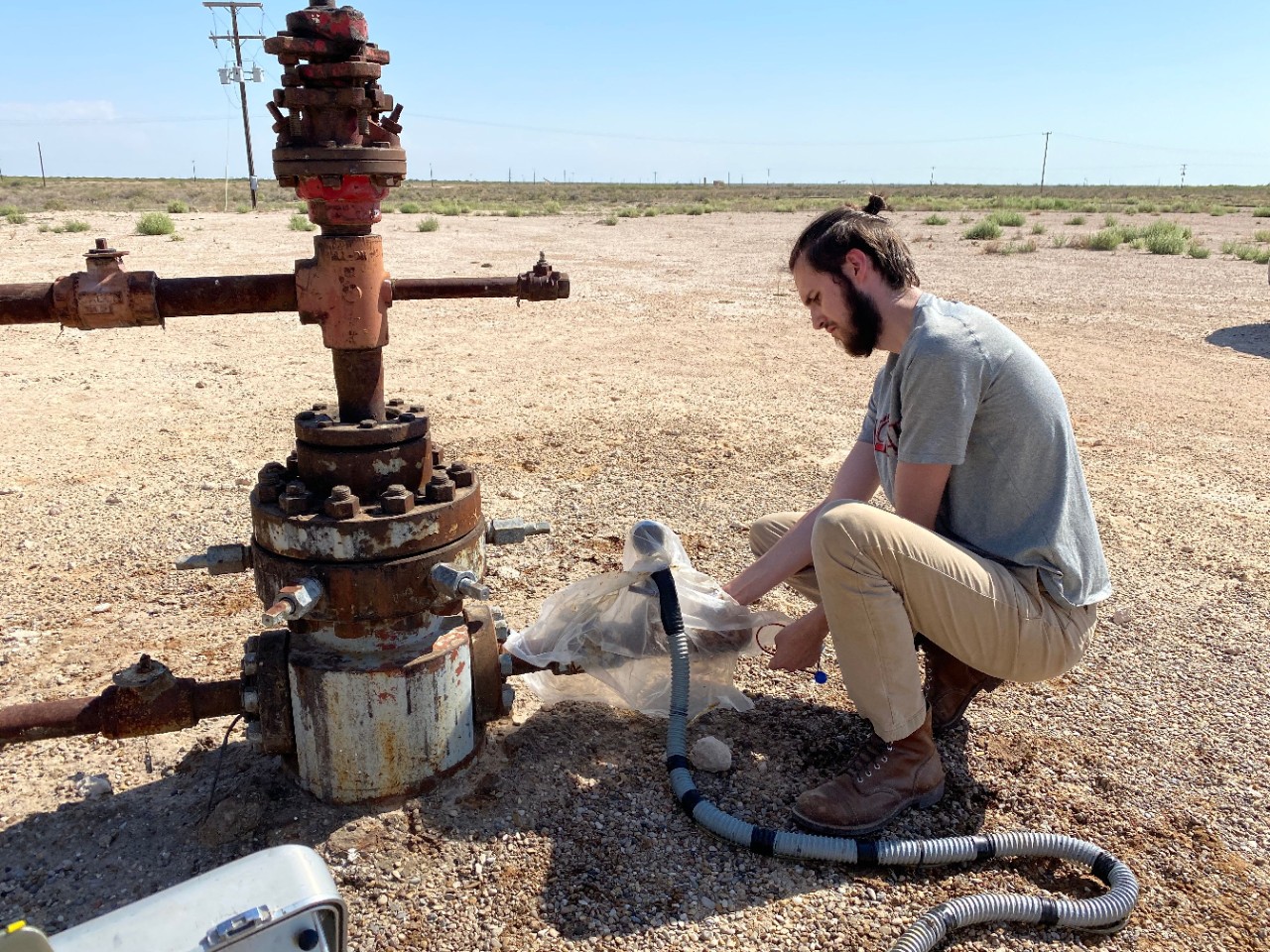
The health impact of living near a natural gas leak
UC expert talks to BBC about issue of methane leaks at abandoned wells
The BBC talked to a University of Cincinnati professor about the ways leaking oil and natural gas wells might be affecting public health.
Studies have linked pollutants related to the oil and gas industry with as many as 710 premature deaths and tens of thousands of cases of childhood asthma nationwide each year. Leaking wells are known to release volatile organic compounds such as benzene, which has been linked to cancer.

UC Professor Amy Townsend-Small. Photo/Jay Yocis/UC
The BBC spoke to UC College of Arts and Sciences Professor Amy Townsend-Small who has been studying the national problem of leaking and abandoned wells across the country.
"The highest concentrations of these non-methane hydrocarbons are in gas at wellheads, which also have the highest emission rates," Townsend-Small told the BBC.
Millions of Americans live within a mile of an orphaned oil or gas well or abandoned coal mine, according to the U.S. Department of the Interior. These sites are notorious for creating air and water pollution.
Congress set aside $4.7 billion in President Biden's Infrastructure Law to inventory and cap abandoned oil and gas wells. The initiative is expected to help address the escape of methane, a greenhouse gas that is a key driver of climate change.
In a study published last year in the journal PLOS Climate, Townsend-Small recommended a proposal to cap "marginal" or low-producing wells, many of which have also been found to be leaking.
She found that these marginal wells leak methane at a disproportionate rate compared to their meager production of oil or natural gas.
Featured image at top: UC graduate Jacob Hoschouer measures methane emissions at the site of an abandoned well in Texas. Photo/Provided
Related Stories
History Department Lecture
January 9, 2002
Lecture by Allan W. Winkler, Miami University, Oxford on "Urban America in World War II: Cincinnati as an example" at the Cincinnati Museum Center at 7:30pm.
UC Research Ranking Climbs
January 10, 2002
The University of Cincinnati moved up in two different national rankings established by the National Science Foundation (NSF) to compare college and university research efforts.
History Department Lecture
January 17, 2002
Lecture by Leslie Adelson, Cornell University, will deliver a Taft lecture titled "Back to the Future and Beyond 'Two Worlds':Turkish Lines of Thought in Contemporary German Literature and Memory Work" at 3:00pm in the Max Kade German Cultural Center in Old Chemistry.
New Appointments in McMicken Administration
January 21, 2002
The college is very pleased to announce two new appointments.
Sign Up for the Discovering A&S Elective
January 24, 2002
Parent's Asking, "What does someone do with THAT major?" Don't know all your options? Sign up for a 2 credit hour elective where you can meet A&S faculty, emeriti faculty, as well as, alumni.
Three of Four UC Fulbrights Scholars from McMicken
January 28, 2002
Tainted water supplies in Bangladesh, international security and missile defense, transformations in Mexico and greater understanding of India - this varied list sums up the work of four Fulbright Scholars at the University of Cincinnati who are concentrating on real-life issues involving our neighbors around the world.
Prominent Line-Up Examines Race in 2002 Ropes Series
January 31, 2002
The issue of race will receive one of the most intensive examinations undertaken in Cincinnati since the April riots when the University of Cincinnati Department of English launches its Ropes series in January and February 2002.
Nominate a Distinguished Alumni
January 31, 2002
The Purpose of the Distinguished Alumni Awards is to recognize graduates of the McMicken College of Arts and Sciences for outstanding achievements.
UC Physicists Play Important Role in Experiments That Provided New Understanding of Neutrinos
January 31, 2002
Three physicists at the University of Cincinnati played a key role in recent experiments which provided a surprising new understanding of a tiny subatomic particle known as the neutrino.
Angelene Jamison-Hall: Publishing Award
February 13, 2002
An unpublished novel by Angelene Jamison-Hall won first place in the new writing contest sponsored by River View Publishing in Riverside, Iowa.
